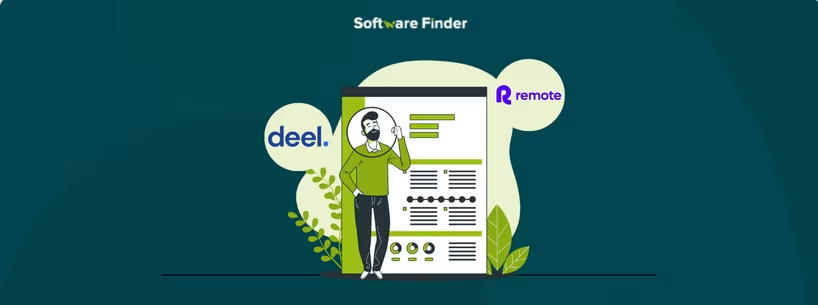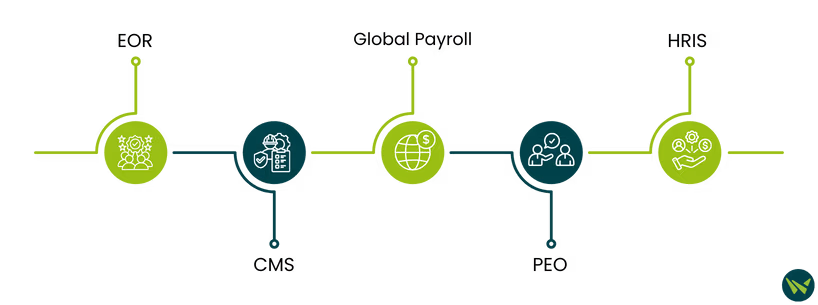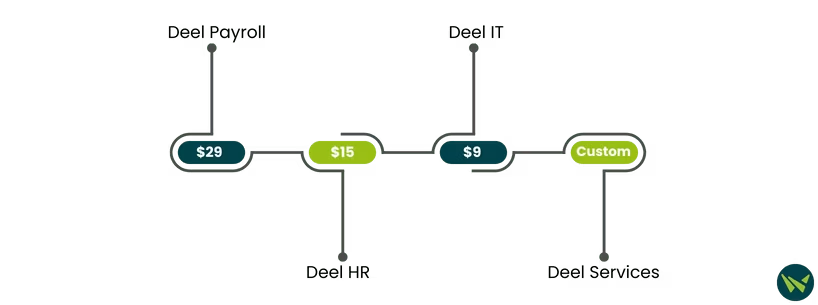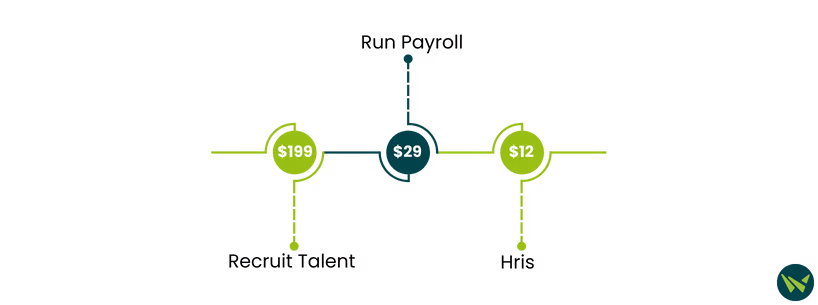
Managing a global workforce can be quite challenging and a complex task. However, by leveraging efficient tools and solutions, teams can stay on top of their games and simplify tasks seamlessly.
In this regard, human resources (HR) solutions such as Deel and Remote are two of the trusted software that aim to simplify the chaos of international hiring, payroll, compliance, and contractor management – all within one platform.
In this comparison, we’ll compare Deel vs Remote and their unique features, strengths, weaknesses, pricing, and features where their paths intersect and diverge so you can make an informed decision for your company.

Feature | Deel | Remote |
Employer Of Record Services | Helps in monitoring and flagging recent changes in regulatory, pension, and wages to streamline the workflows. | Owns and operates 100% of its entities, built-in lifecycle tools to help amend contracts, generate employment letters, and process resignations. |
Contractor Management System | Provides various useful tools for real-time communication, secure file sharing, and automated workflows; multi-currency support. | Offers powerful automation tools by integrating advanced features for onboarding, invoicing, and global payments. |
Global Payroll | Sends alerts to companies along with an action plan; supports multiple payment methods, including crypto and digital wallets. | Offers a native payments engine that ensures seamless salary and tax processing in every country. |
Professional Employer Organization | Helps companies navigate through new hire reporting, worker compensation, W-2 and 1099 filings, COBRA compliance, ACA (Affordable Care Act) reporting, and employment practices and liability insurance. | Provides tools and support to hire, pay, and manage teams across multiple locations in the U.S. |
Human Resources Information System | Includes workforce insights with centralized reporting, workflows, and permissions. | Offers an AI-powered recruiting, onboarding, payroll, performance, and compliance. |
Deel is a global-first HR and payroll platform designed to simplify how companies hire, manage, and pay their employees, contractors, or part of an Employer of Record (EOR) model. The platform brings payroll, compliance, benefits, workforce planning, immigration support, and HR operations into one scalable system.
Deel allows companies in more than 150 countries to consolidate their tools, reduce overhead, and access useful insights to effectively manage their workforce data. It enables businesses to hire worldwide without opening legal entities, streamline HR, and pay workers of all types around the globe with consolidated payroll, while following compliance rules.
Unique Features Of Deel
- Deel Immigration: It is a full-service global mobility solution that covers the entire visa and relocation process, from eligibility checks and document uploads to reminders, case tracking, e-signatures, and 24/7 multi-channel support
- Deel Engage: It enables businesses to build custom training courses and manage performance reviews with the help of AI-powered tools. The platform combines learning management, performance tracking, and employee development
Pros And Cons Of Deel
Pros:
- Strong local compliance integration
- Simplified international hiring workflow
- Reliable and transparent process for payment
Cons:
- May have a complex multi-account payment setup
- May have limited payroll coverage in some countries
Remote HR platform is a global HR and payroll software designed to help companies hire, pay, and manage employees and contractors around the world. It offers important HR functions such as payroll, recruitment, and remote human resources information system (HRIS).
The software allows businesses to store employee data, consolidate HR tools, and simplify various expenses and vacation days – all in a unified platform. Moreover, it stands out for combining EOR services with a built-in HR system, enabling organizations to ensure compliance with local labor laws.
Unique Features Of Remote
- Equity Management Tools: Remote provides its users with equity tools to issue grants to their teams. It incentivizes people with equity plans
- 100% In-House Entity Coverage: Remote is the only global HR platform that offers unlimited EOR indemnity and 100% ownership of all entities from the day of onboarding. It doesn’t work with third parties to outsource or manage services
Pros And Cons Of Remote
Pros:
- Easy money management in cross currencies
- Mobile app enables a flexible work environment
- Real-time payroll status updates
Cons:
- May have limited customization options in notifications and the dashboard
- Integrations with third-party platforms may be limited

Deel offers a straightforward pricing structure for all its modules. Each solution has multi-tiered plans, allowing businesses to choose one that fits their criteria the best. This includes:
- Deel Payroll - Starting from $29/employee/month
- Deel HR – Starting from up to $15/employee/month
- Deel IT – Starting from $9/device/month
- Deel Services – Custom pricing
 Remote also offers three distinct modules with varying pricing structures. The plans are as follows:
Remote also offers three distinct modules with varying pricing structures. The plans are as follows:
- Recruit Talent – Starting from $199/month
- Run Payroll – Starting from $29/employee/month
- HRIS - $12/employee/month
On the whole, both software equip businesses with diverse plans so they can choose the one that fits their budget, needs, and functionalities requirements. However, for businesses seeking more cost-effective starting price points, Deel could be a good choice. Whereas companies that may look for more HR and payroll related capabilities can consider Remote.
Disclaimer: The pricing is subject to change.
On the whole, both Deel and Remote offer well-rounded platforms with various functionalities, each catering to different types of businesses’ needs and requirements.
Deel shines for companies that seek a seamless immigration process along with the ability to build custom training courses. It also includes a solid global payroll solution that offers multiple payment methods, along with crypto and digital wallets.
On the other hand, Remote appeals more to the businesses that seek equity management tools, with 100% entity ownership, and advanced AI-powered tools to automate workflows.
Ultimately, the choice comes down to what your company values the most, what its core requirements are, and the kind of scalability it is looking for. Either way, both platforms offer efficient tools to elevate your HR strategy and help with your team’s success.
